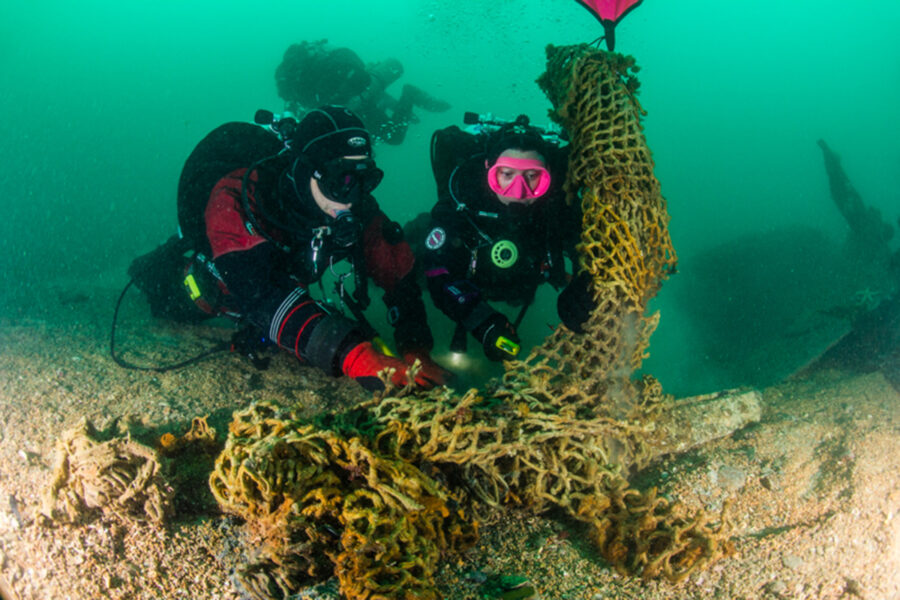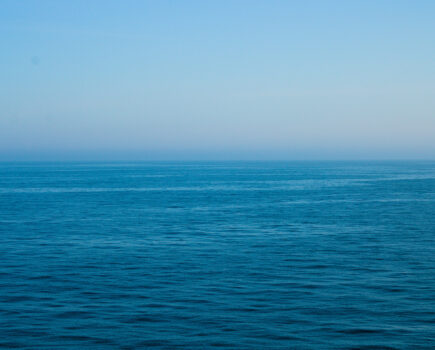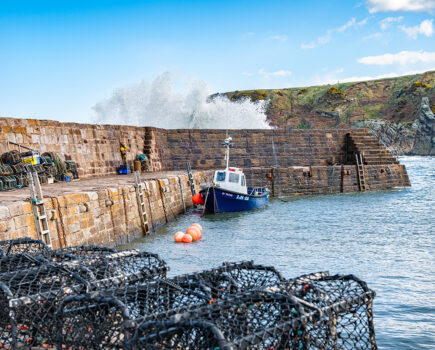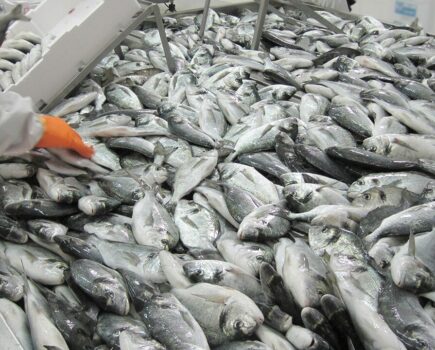Ghost Fishing UK, a finalist in The Sustainability Award category in this year’s Fishing News Awards, is a registered charity dedicated to removing abandoned, lost and discarded fishing gear. Its aim is to remove, where practicable, potentially lethal entanglement hazards to marine life and scuba divers from the marine environment.
Established in 2015, the charity consists of volunteer scuba divers, with extensive training in advanced diving practices specifically in relation to minimising impact on the environment.
“I am not sure who nominated us for the awards,” Christine Grosart, trustee and secretary of Ghost Fishing UK told Fishing News, “but of course we are really pleased to be nominated, and even happier to have been placed by the judges on the shortlist.
“In many ways it reflects the hard work our volunteers have put in, building trusting relationships with working fishermen. This absolutely is not about any blame being apportioned, nor any finger-pointing.
“Trust is vital to us helping minimise the impact of lost fishing gear on the environment, and unwanted bycatch, and we are seeing more and more skippers contacting us around the country, both when they have lost gear, and in some cases when they have themselves suffered entanglement in gear from elsewhere.
“It can be amazing how far some gear carries. The only large net we’ve ever managed to identify, from a tag on the gear, was retrieved from near Orkney by a volunteer team. The net originated in Nova Scotia!
It was neutrally buoyant and had somehow been pushed across by wind and current from Canada.”
Ghost Fishing UK is about much more than a few keen volunteers removing nets from wrecks, although the impacts and benefits from such work can be considerable – in Scapa Flow, a team removed several tonnes of fishing gear over a three-year period. Seventy dedicated volunteers have now completed its full ghost gear training course, which was the first of its type ever devised.
The trust maintains a detailed log of discarded and recovered gears, carefully maps activities, and undertakes detailed training of volunteers before any planned gear removal. Much of the retrieved gear is recycled. Some is returned to skippers, where it can be reused or repaired, and, said Christine, ‘we often have the odd lost pot that we can’t find owners for, that we’d rather see reused by fishermen than destroyed’.
“Some skippers who contact us are very publicity-shy, which we respect. Others are quite happy to be seen to be helping us identify hotspots of lost gear, particularly the type of ghost gear that can result in bycatch of seals or birds, which can bring such negative publicity for the industry.
“We are happy with either approach, and are very grateful for the growing number of skippers who do contact us.”
The charity also partners with a host of local Wildlife Trusts and other environmental charities, including the Marine Strandings Network and, says Christine, can often act as a go-between with these bodies if fishers are concerned that they will be accused or blamed in some way for any bycatch from lost gear.
“We tend to concentrate activity where, naturally, more diving is found – the south coast, the South West, and then along the northeast coast around Eyemouth, St Abbs and Orkney, which remains an attraction for many visiting divers. But we are keen to hear from any fisher who would like us to retrieve lost gear, for their own reuse, or to simply remove gear that is threatening their fishing activity as well as the marine environment that supports the industry.
“We can be found easily through our website, on Facebook or Twitter, and would welcome any new interest or reports of lost gear from Fishing News readers.”
The Fishing News Awards Sustainability Award is sponsored by The Fishmongers’ Company’s Fisheries Charitable Trust, and the winner will be decided by a panel of industry judges.
This story was taken from the latest issue of Fishing News. For more up-to-date and in-depth reports on the UK and Irish commercial fishing sector, subscribe to Fishing News here or buy the latest single issue for just £3.30 here.








